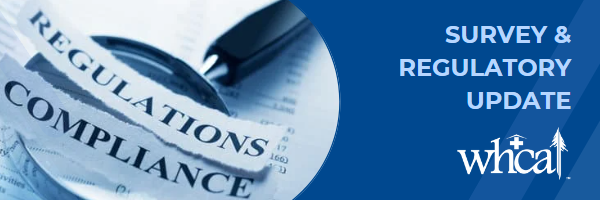Mar 21 2023 | Medication Errors in Assisted Living
With the high average number of daily medications taken by residents in assisted living, medication error rates can be relatively high. Combine the high number of daily meds with the fact that there is no required training for caregivers who assist with medications, and some may pause with worry. A sigh of relief comes, however, from a study out of University of Washington, published about 15 years ago, demonstrating that caregivers in assisted living made fewer medication errors than licensed nurses.
No matter the numbers of errors or who made them, the fact remains that medication errors pose significant risk to residents. The term “medication error” is defined as “any preventable event that may cause or lead to inappropriate medication use or patient harm while the medication is in the control of the healthcare professional, patient, or consumer.”* With the evolution of “just culture” in health care, the views on medication errors change from blaming a specific individual or group to exploring the facility’s systems in an effort to improve all aspects of medication delivery instead; this allows the facility to improve and strengthen systems for the greater good.
Regardless of other terms for medication error (including medication defect, medication-related event, medication incident), there are standard expectations related to prevention as well as response.
*National Coordinating Council for Medication Error Reporting and Prevention
Prevention of Medication Errors
WAC 388-78A-2450 does state that “each assisted living facility must provide sufficient, trained staff persons to furnish the services and care needed by each resident consistent with his or her negotiated service agreement and maintain the assisted living free from hazards.”
Medication errors are minimized through excellent and thorough staff onboarding and ongoing competency training and evaluations. This includes licensed nurses as well as caregivers whose roles include medication management. Training on expectations, proper medication handling and delivery, prompt and complete documentation, as well as ordering, storing, and destruction all play significant parts in the prevention of medication errors. Routine and unannounced observations with just-in-time practice improvement training aid in the continuous efforts to prevent medication errors.
Response to Medication Errors
WAC 388-78A-2371 outlines that any accident or incident that jeopardizes or affects a resident’s health or life must be investigated and documented. This includes determining the circumstances of the event (what happened), and prevention measures put into place to minimize recurrence.
There are times when medication errors also need to be reported to the Complaint Resolution Unit (CRU/DSHS hotline) as well as the credentialing agency (Department of Health) of the staff member responsible for administering or assisting with the medication. While not explicitly mentioned in RCW 74.34, medication errors can certainly rise to the level of alleged or suspected resident abuse or neglect, depending on the type of medication error (commission or omission) and other factors involved.
The Medication Error Decision Tree, provided on page 23 of the DSHS “Blue Book” (Guidebook for assisted living providers to aid in facility investigations and reporting expectations) quickly allows anyone working in the assisted living facility to determine if a report to the DSHS hotline should be made. Two of the main questions to ask yourself when considering whether to report a medication error include:
- Was there serious disregard for consequences? This question addresses the staff person directly: did the staff person assisting with or administering the medication act (or fail to act) in such a way that showed a blatant disregard for what would happen? Depending on the action or inaction, this could be construed as possible abuse or neglect.
- Is there significant risk of harm? This question addresses the medication either given or omitted, as well as the staff involved. For example, reporting an incident where an over-the-counter Tums was missed would not rise to the level of reporting to the hotline; administering the wrong dose of insulin, however, could lead to significant harm.
Of note, any required reporting to the hotline must occur immediately (as soon as the resident is safe); that means the two questions above must be addressed upon discovery of the error in order to make an urgent reporting decision. The facility investigation, while important, can begin shortly thereafter. If a question arises on whether to report, err on the side of safety and report; your investigation can demonstrate prevention measures by which the specific medication system in question will be improved.
Regardless of the cause of a medication-related incident, it is imperative the assisted living team look at systems to strengthen medication management efforts. By limiting the scope of an error solely to the person(s) who were involved, the facility may incur a multitude of additional burdens, including but not limited to:
- Creating an environment where errors are hidden or covered up, rather than brought to light and addressed early
- Disgruntled, fearful employees who lack job satisfaction
- High staff turnover
- Continued DSHS-issued citations with possible fines and/or conditions on the assisted living license
- Continued medication errors, risks to residents
To mitigate these possible burdens, the facility investigator and the entire facility management and staff must embrace a learning environment where efforts are made to prevent errors from occurring, and systems (rather than just people) are looked at with an eye to strengthen. Creating a culture whereby employees are expected to perform at their best all while seeking ways to reinforce company-wide safety systems has shown to improve staff morale and resident safety.
Questions about assisted living regulations? Email Vicki McNealley or call 1 (800) 562-6170, ext. 107.
Posted in Assisted Living, Survey & Regulatory

